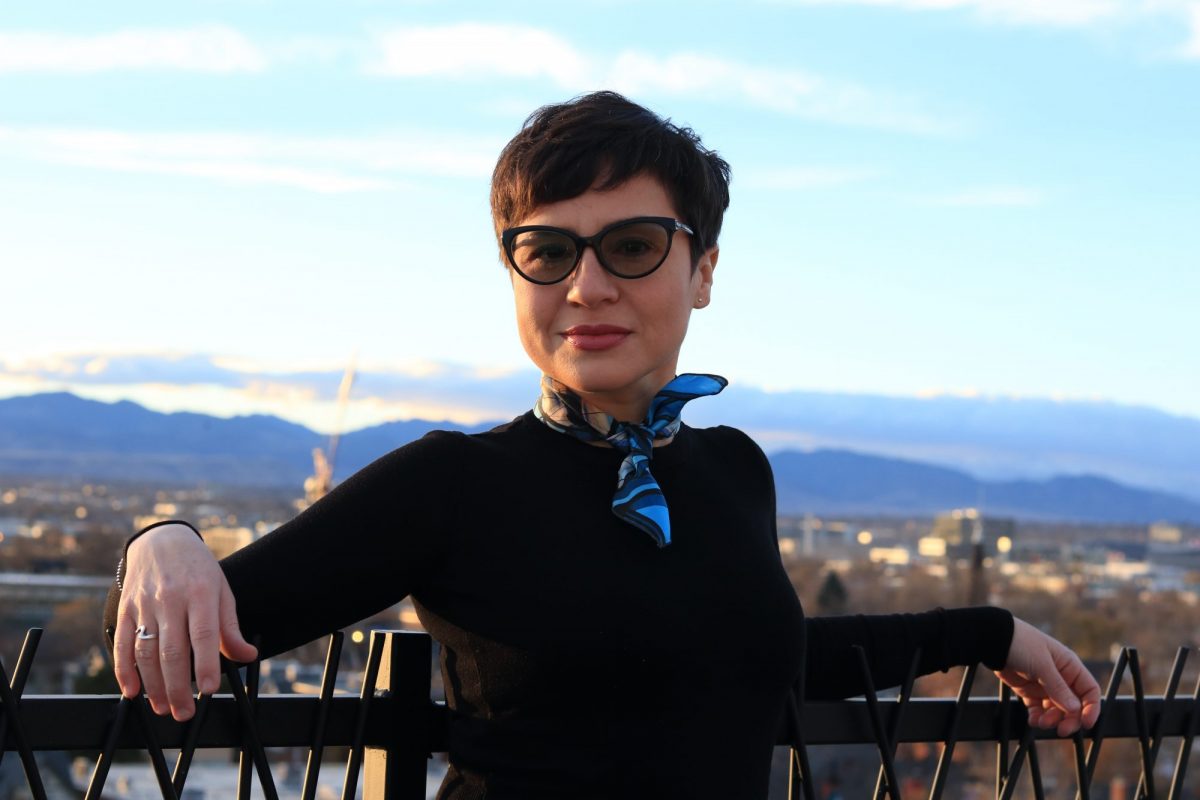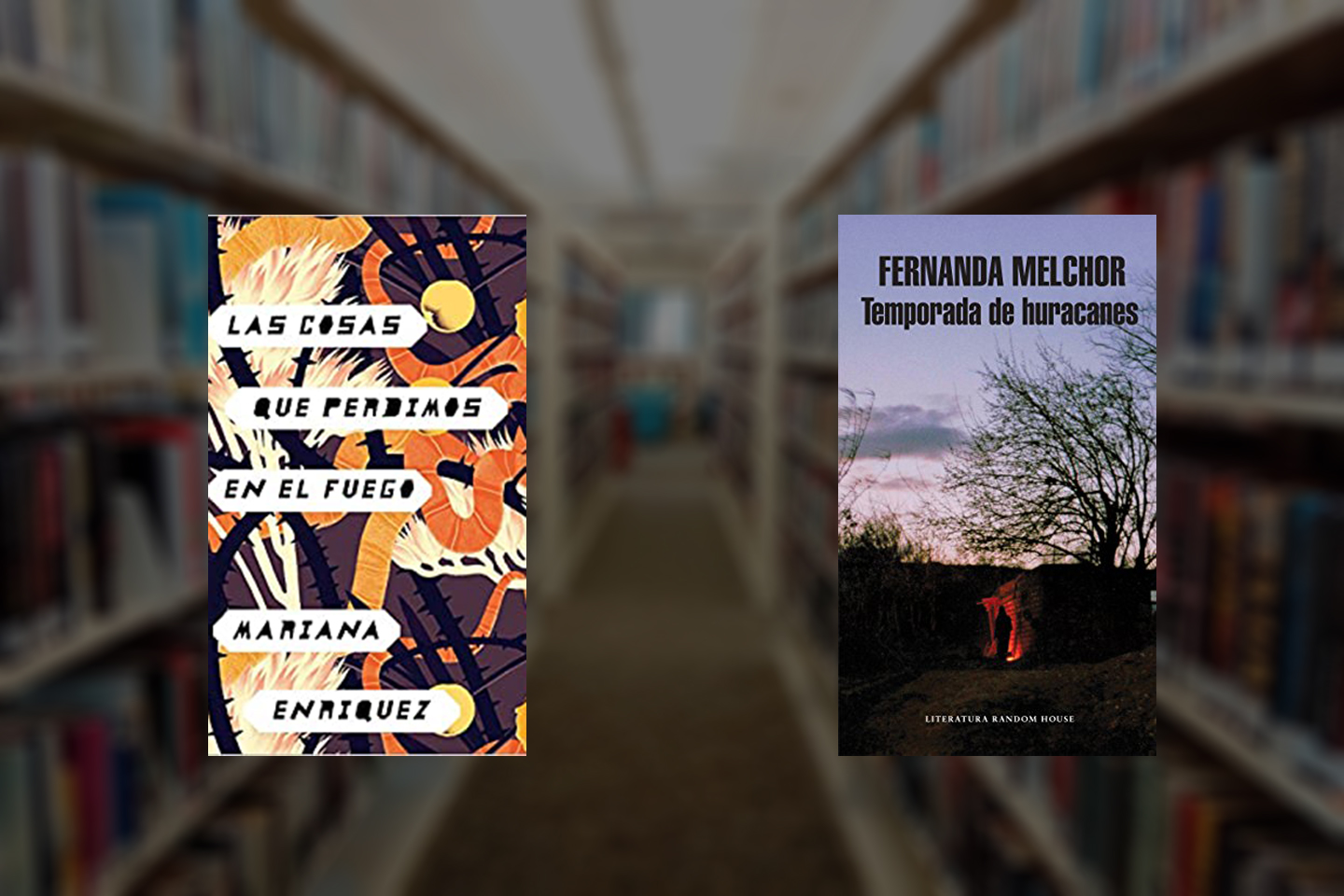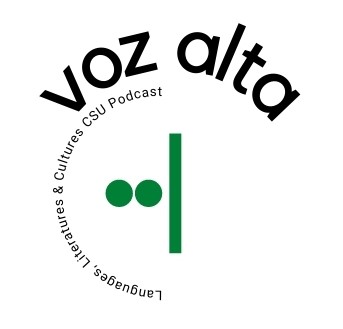
CSU Assistant Professor of Spanish María Inés Canto Carrillo (Photo by Josh Miller/Josh Miller Ventures)
When more of life began moving online due to the COVID-19 pandemic, so too did the feminist movement in Latin America, said María Inés Canto Carrillo, Colorado State University Assistant Professor of Spanish in the Department of Languages, Literatures and Cultures.
“Everything was streaming live, and a lot of writers just liberated their novels — their text — through social media,” Canto said.
Crossing that frontier not only amplified these new literary voices, but also gave a platform to some new and old topics on the written page, through social media, and via podcast.

Contemporary writers, historical issues
During the past few years, works by more contemporary Latin American female writers, including Mexican author Fernanda Melchor (Temporada de Huracanes or Hurricane Season) and Argentinian novelist and journalist Mariana Enríquez (Las Cosas que Perdimos en el Fuego or Things We Lost in the Fire), have been elevated, Canto said. With that, there’s also been an increase in these authors crossing into topics that have long been overlooked, such as incest.
Mexico ranks first globally in child sexual abuse, with 5.4 million cases a year, according to the Organization for Economic Cooperation and Development (OECD). In 2019, one out of four girls and one out of six boys suffered rape before reaching the age of 18. Over the past few years, more writers have begun opening up about this issue, particularly in regards to the secrecy and violence interconnected within it, Canto said.
“It's the first time that this topic is appearing so directly and without trying to justify the appearance of incest in a piece of literature as just part of the novel,” she said.
For Canto, that shift is not only interesting on an academic level, but as an ethical one as well.
“We need to be able to talk about this as part of our society to be able to change it, because it has been centuries of silence,” she said. “For me, it's very exciting to start living in this current moment, even if it's very scary.”
Still relevant
On the other end of the spectrum, older works have found a renewed resurgence.
While queer Chicana writer and feminist theorist Gloria E. Anzaldúa’s book, Borderlands/La Frontera: The New Mestiza, was originally released in 1987, the latest edition (released in August 2021) is still as relevant as ever, Canto said.
Through semi-autobiographical essays and poetry, the book examines the Latinx and Chicano experience, focusing on both the literal border between the U.S. and Mexico, and the people navigating the “invisible borders” of gender, identity, race and colonialism. Even the framework of the book itself is a tool of empowerment for women in the writing field, she said.
“Because that activity — writing — wasn't related to us at all through most of history,” Canto said. “It was only 200 years ago that we were allowed in the universities. So our story as women in academia is very new, we are still building it.”
“It was only 200 years ago that we were allowed in the universities. So, our story as women in academia is very new, we are still building it.”
Anzaldúa also broke boundaries by addressing her own experiences as a lesbian in academia.
“To be open about her sexual identity, to identify herself in the 1980s as a lesbian in academia — it's a power that she gave to all of us to name ourselves in the terms that we want,” she said. “And not only that, but also feeling proud and making a statement that this part of our identity is important and is not an option is also part of our political growth as a community.”
Me Too across borders
Latin American women’s voices have also been amplified on social media.
While the Me Too movement may have begun in the U.S. — both in 2006 by activist Tarana Burke and later reemerging in 2017 when numerous actresses began posting about sexual assault and harassment in Hollywood — it quickly crossed borders into other communities around the world.
“Me Too was a revelation for everyone,” she said. “The power of social media also gave us the opportunity, especially with the many types of feminism in Latin America, to organize.”
The anthologies Tsunami and Tsunami 2, edited by Mexican writer Gabriela Jáuregui, gathered the outcries to violence against women, similar to those during the Me Too movement. The collections of essays, poems, and narratives feature works from women writers, film directors, activists and academics that not only analyze Latin America’s long patriarchal history but also its place as one of the deadliest for women and girls in the world.
By showcasing writers from 18 to 91, the books — like the Me Too movement — aimed to show the diverse level of experiences among women, Canto said.
“We needed to have that broad experience represented,” she said.
In the U.S., these rounds of big social upheaval are referred to as “waves.” But in contemporary Latin American feminist literature, it’s actually being described as closer to a more dramatic weather phenomenon, Canto said.
“We cannot talk about ‘waves’ because not all women are surfing on the same surfboard,” she said. “We are actually a tsunami. It's just a force that keeps growing, and it's nourished with the experiences of the Indigenous peoples, the African-American community, the Mestizas.”

Voz Alta Podcast
The first season of the Voz Alta podcast is coming January 2022. Here's a sneak peek at the guests to be featured:
- Cristina Peri Rossi (Uruguay/ Spain). Cervantes Award 2021.
- Reyna Grande (USA). Chicana writer.
- Samanta Schweblin (Argentina)
- Briceida Cuevas Cob. Mayan indigenous writer.
- Gabriela García (USA). Chicana writer.
- Cristina Rivera Garza (Mexico)
On the airwaves
Elevating these voices and their messages can be powerful, but Canto said it’s important to remember that literature is also about enjoyment.
One way she hopes to connect people back to that is with a new project, Voz Alta (Loud Voice). The Spanish-language podcast launches in January, and will feature readings of short stories and poetry. The first season will focus on female, Latin American writers.
The idea for the podcast came during the pandemic when Canto joined an online reading circle in an effort to stay connected with people. Participants turned off their Zoom cameras to amplify the emotive power of their words, she said. Now she’s hoping to do the same for her students.
The pandemic has changed the classroom forever and pushed educators to find different tools to communicate with students, she said.
“I wanted to do this podcast because sometimes you want solutions for problems, but one of our powers is joy,” Canto said. “We approach literature because we enjoy it, and I wanted to build a space where students don’t need to give me something, don’t need to take a quiz, they just need to be present so they can enjoy literature for 15 minutes.”
Navigating Borders
From water to dance, science to film, clay to gender, the liberal arts helps us navigate the borders in our lives that are physical, metaphorical, or cultural.
